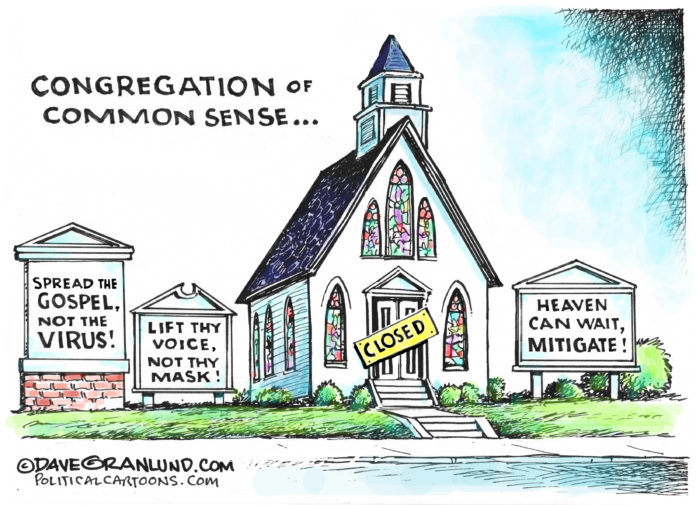Dear Justices of the Supreme Court of the United States:
Religious freedom does not include the freedom to harm or kill others through super-spreader events in the midst of a deadly global pandemic. By exempting religious communities from restrictions on public gatherings during a public health emergency, you are letting your religious ideologies get in the way of your constitutional duties.
Limiting gatherings of all kinds during a public health emergency does not violate the free exercise clause of the First Amendment of the Constitution of the United States as it is not singling out religious communities for disparate treatment, but rather it is a science-based policy that applies to the entire human community.
The five justices who decided to exempt religious communities from restrictions on public gatherings have shown that your allegiance to your religious ideologies is stronger than your allegiance to the health and safety of all Americans.
If persons want to harm themselves or be involved in behavior that risks their own health or life for religious reasons, then the free exercise clause could be interpreted in such a way as to allow them to do so. If persons want to refuse medical treatment for a non-communicable disease or other non-communicable ailment for religious reasons, then the free exercise clause could be interpreted as allowing them to do so. The free exercise of religion allows persons to freely practice their religion in ways that do not create harm to others.
Meeting in large groups in ways that do not follow public health protocols during what is becoming the most deadly pandemic in a century is not a right protected by our constitution. Given what we know about COVID-19, gathering in such a way is knowingly and willingly not only putting the participants in the religious gatherings at risk but also every other person with whom they come into contact.
We commonly make laws that protect each other from activities that bring unnecessary harm or even death to persons within our communities, and persons in religious communities are not exempt from these laws.
By exempting religious communities from restrictions on gatherings in a deadly pandemic, five members of the Supreme Court of the United States have allowed their religious ideologies to make the Supreme Court of the United States an enabler of gatherings of persons who are knowingly and willingly acting in ways that are bringing grave harm to our communities, and thus these justices are making the Supreme Court of the United States an accomplice to the harm and death caused by these gatherings – and that is, in most rational societies, a crime.








